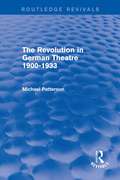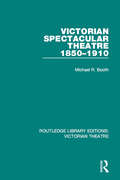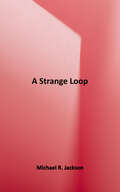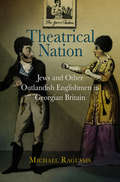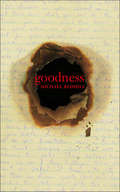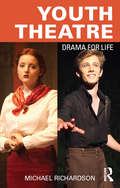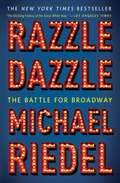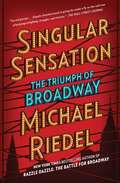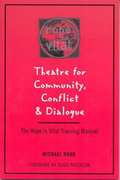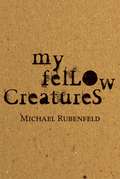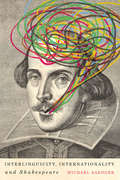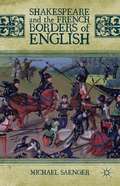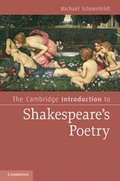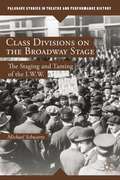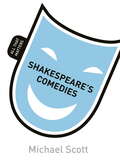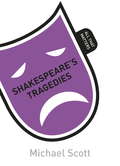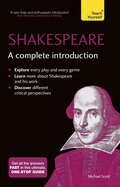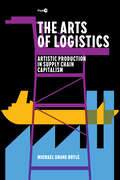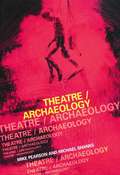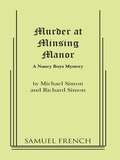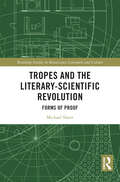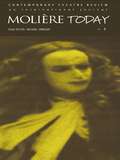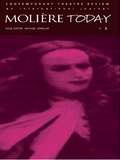- Table View
- List View
The Revolution in German Theatre 1900-1933 (Routledge Revivals)
by Michael PattersonFirst published in 1981, this book represents the first work in English to give a comprehensive account of the revolutionary developments in German theatre from the decline of Naturalism through the Expressionist upheaval to the political theatre of Piscator and Brecht. Early productions of Kaiser’s From Morning till Midnight and Toller’s Transfiguration are presented as examples of Expressionism. A thorough analysis of Piscator’s Hoppla, Such is Life! And Brecht’s Man show the similarities and differences in political theatre. In addition, elements of stage-craft are examined — illustrated with tabulated information, an extensive chronology, and photographs and designs of productions.
Victorian Spectacular Theatre 1850-1910 (Routledge Library Editions: Victorian Theatre #3)
by Michael R. BoothOriginally published in 1981. This study concentrates on one aspect of Victorian theatre production in the second half of the nineteenth century – the spectacular, which came to dominate certain kinds of production during that period. A remarkably consistent style, it was used for a variety of dramatic forms, although surrounded by critical controversy. The book considers the theories and practice of spectacle production as well as the cultural and artistic movements that created the favourable conditions in which spectacle could dominate such large areas of theatre for so many years. It also discusses the growth of spectacle and the taste of the public for it, examining the influence of painting, archaeology, history, and the trend towards realism in stage production. An explanation of the working of spectacle in Shakespeare, pantomime and melodrama is followed by detailed reconstructions of the spectacle productions of Irving’s Faust and Beerbohm Tree’s King Henry VIII.
A Strange Loop
by Michael R. JacksonWinner of the 2020 Pulitzer Prize for Drama “To watch this show is to enter, by some urgent, bawdy magic, an ecstatic and infinitely more colorful version of the famous surreal lithograph by M. C. Escher: the hand that lifts from the page, becoming almost real, then draws another hand, which returns the favor. Which came first? A Strange Loop is complex, teasing, thrilling.” —Vinson Cunningham, New Yorker Usher is a Black, queer writer, working a day job he hates while writing his original musical: This blistering musical follows a young artist at war with a host of demons, not least of which are the punishing thoughts in his own head—in an attempt to understand his own strange loop.
Theatrical Nation
by Michael RagussisPerhaps the most significant development of the Georgian theater was its multiplication of ethnic, colonial, and provincial character types parading across the stage. In Theatrical Nation, Michael Ragussis opens up an archive of neglected plays and performances to examine how this flood of domestic and colonial others showcased England in general and London in particular as the center of an increasingly complex and culturally mixed nation and empire, and in this way illuminated the shifting identity of a newly configured Great Britain.In asking what kinds of ideological work these ethnic figures performed and what forms were invented to accomplish this work, Ragussis concentrates on the most popular of the "outlandish Englishmen," the stage Jew, Scot, and Irishman. Theatrical Nation understands these stage figures in the context of the government's controversial attempts to merge different ethnic and national groups through the 1707 Act of Union with Scotland, the Jewish Naturalization Bill of 1753, and the Act of Union with Ireland of 1800.Exploring the significant theatrical innovations that illuminate the central anxieties shared by playhouse and nation, Ragussis considers how ethnic identity was theatricalized, even as it moved from stage to print. By the early nineteenth century, Anglo-Irish and Scottish novelists attempted to deconstruct the theater's ethnic stereotypes while reimagining the theatricality of interactions between English and ethnic characters. An important shift took place as the novel's cross-ethnic love plot replaced the stage's caricatured male stereotypes with the beautiful ethnic heroine pursued by an English hero.
Goodness
by Michael RedhillWinner of the Best of the Edinburgh Fringe Prize. Our hero, the recently divorced Michael Redhill, goes to Poland to get away from his life and to do some research on the Holocaust. Thwarted by witnesses unwilling to talk, he returns home via England, but in London is introduced to someone who can tell him a 'real' story of evil, and genocide. Through the memory of the storyteller, who served as a prison guard, he encounters an alleged war criminal with Alzheimer's who is about to be put on trial, along with the man's beautiful daughter and an attorney who is eerily similar to the criminal he's prosecuting. But has the old man's guilt dissolved with his memory? Could he be pretending to be ill in order to escape punishment?Who do we believe? A prison guard still wounded by history? A writer suffering from heartache? A dying war criminal? Who does memory serve? Did the past really happen? And if it did, who has a claim on it? Goodness is a morality tale for the modern age. This remarkable play, by the award-winning author of Building Jerusalem and Martin Sloane, is a Russian-doll: concentric stories enveloping each other, inhabiting the gaps between experiencing, telling and hearing.
Youth Theatre: Drama for Life
by Michael RichardsonYouth Theatre: Drama for Life defines the youth theatre process, by outlining its constituent parts and explaining how these activities work in order to support young people’s development. As well as describing what?is done in youth theatre, it also explores why it’s done and how to ensure the best possible outcomes. The book is in four parts: Part 1 explores the nature and purpose of youth theatre, drawing on Michael Richardson’s extensive personal experience as a practitioner and manager. Part 2 explains, in detail, the youth theatre process: warming up, playing games, voice work, developing skills, devising and the presentation of devised work. Part 3 discusses how to create an appropriate environment within which the youth theatre process can be most effectively applied. Part 4 covers the most common applications of the youth theatre process, namely using it in different education environments; and youth theatre productions and performance. On top of this, two appendices give a list of over 60 games that are useful to use in youth theatre; and a list of recommended further reading that supports this book. As well as giving key tips and advice from his own invaluable experience, Richardson offers comments from practitioners and participants on what makes a successful youth theatre experience. Michael Richardson has worked in youth theatre for over 20 years, has been involved in the training of other practitioners, and in the strategic development of the youth theatre sector in the UK.
Razzle Dazzle: The Battle for Broadway
by Michael Riedel&“A vivid page-turner&” (NPR) detailing the rise, fall, and redemption of Broadway—its stars, its biggest shows, its producers, and all the drama, intrigue, and power plays that happened behind the scenes.&“A rich, lovely, debut history of New York theater in the 1970s and eighties&” (Kirkus Reviews, starred review), Razzle Dazzle is a narrative account of the people and the money and the power that turned New York&’s gritty back alleys and sex-shops into the glitzy, dazzling Great White Way. In the mid-1970s Times Square was the seedy symbol of New York&’s economic decline. Its once shining star, the renowned Shubert Organization, was losing theaters to make way for parking lots and losing money. Bernard Jacobs and Jerry Schoenfeld, two ambitious board members, saw the crumbling company was ripe for takeover and staged a coup and staved off corporate intrigue, personal betrayals and criminal investigations. Once Jacobs and Schoenfeld solidified their power, they turned a collapsed theater-owning holding company into one of the most successful entertainment empires in the world, spearheading the revitalization of Broadway and the renewal of Times Square. &“For those interested in the business behind the greasepaint, at a riveting time in Broadway&’s and New York&’s history, this is the ticket&” (USA TODAY). Michael Riedel tells the stories of the Shubert Organization and the shows that re-built a city in grand style—including Cats, A Chorus Line, and Mamma Mia!—revealing the backstage drama that often rivaled what transpired onstage, exposing bitter rivalries, unlikely alliances, and inside gossip. &“The trouble with Razzle Dazzle is…you can&’t put the damn thing down&” (Huffington Post).
Singular Sensation: The Triumph of Broadway
by Michael Riedel&“Fun and gossipy.&” —The Wall Street Journal * &“A masterful history.&” —Publishers Weekly (starred review) * &“Engaging.&” —Newsweek A &“brisk, insightful, and deliciously detailed take&” (Kirkus Reviews) on a transformative decade on Broadway, featuring behind-the-scenes accounts of shows such as Rent, Angels in America, Chicago, The Lion King, and The Producers—shows that changed the history of the American theater. The 1990s was a decade of profound change on Broadway. At the dawn of the nineties, the British invasion of Broadway was in full swing, as musical spectacles like Les Miserables, Cats, and The Phantom of the Opera dominated the box office. But Andrew Lloyd Webber&’s Sunset Boulevard soon spelled the end of this era and ushered in a new wave of American musicals, beginning with the ascendance of an unlikely show by a struggling writer who reimagined Puccini&’s opera La Bohème as the smash Broadway show Rent. American musical comedy made its grand return, culminating in The Producers, while plays, always an endangered species on Broadway, staged a powerful comeback with Tony Kushner&’s Angels in America. A different breed of producers rose up to challenge the grip theater owners had long held on Broadway, and corporations began to see how much money could be made from live theater. And just as Broadway had clawed its way back into the mainstream of American popular culture, the September 11 attacks struck fear into the heart of Americans who thought Times Square might be the next target. But Broadway was back in business just two days later, buoyed by talented theater people intent on bringing New Yorkers together and supporting the economics of an injured city. &“Told with all the wit and style readers could wish for&” (Booklist) Michael Riedel presents the drama behind every mega-hit or shocking flop. From the bitter feuds to the surprising collaborations, all the intrigue of a revolutionary era in the Theater District is packed into Singular Sensation. Broadway has triumphs and disasters, but the show always goes on.
Theatre For Community Conflict And Dialogue: The Hope Is Vital Training Manual
by Michael RohdThe first step forward in working with today's youth is to create a dialogue, and that is exactly what this exciting new book does. It helps you provide opportunities for young people to open up and explore their feelings through theatre, offering a safe place for them to air their views with dignity, respect, and freedom. The purpose of this manual is to provide a clear look at the process and specifics involved in the Hope Is Vital interactive theatre techniques. The organization is sequential, providing a blueprint for creating a workable plan. Beginning with warm-up exercises and bridging activities, the process moves forward to improvisational scenework, where students actually replace characters in the stories. It is at this point that young people engage in their own mini-theatre and look at choices, strategies, and communication. Teachers will want to read this book. Counselors will want to read this book. Community leaders will want to read this book. It is useful in any group setting or as a tool for outreach.
My Fellow Creatures
by Michael RubenfeldVenturing into dark and explosive territory, My Fellow Creatures is a raw, honest, and thoughtful portrayal of these men and their virtues, confronting the reader with difficult questions about love, consent, vengeance, and acceptance.
Sexual Politics in the Work of Tennessee Williams
by Michael S. D. HooperMichael S. D. Hooper reverses the recent trend of regarding Tennessee Williams as fundamentally a social writer following the discovery, publication and/or performance of plays from both ends of his career – the 'proletarian' apprentice years of Candles to the Sun and Not About Nightingales and the once overlooked final period of, amongst many other plays, The Red Devil Battery Sign. Hooper contends that recent criticism has exaggerated the political engagement and egalitarian credentials of a writer whose characters and situations revert to a reactionary politics of the individual dominated by the negotiation of sexual power. Directly, or more often indirectly, Williams' writing expresses social disaffection before glamorising the outcast and shelving thoughts of political change. Through detailed analysis of canonical texts the book sheds new light on Williams' work, as well as on the cultural and social life of mid-twentieth-century America.
Interlinguicity, Internationality, and Shakespeare
by Michael SaengerLanguages have become more mobile than ever before, producing translations, transplantations, and cohabitations of all kinds. The early modern period also witnessed profound linguistic transformation, but in very different ways. Interlinguicity, Internationality, and Shakespeare undoes the illusion that Shakespeare wrote in what we now think of as English. In a series of essays approaching Shakespeare from unique and thought-provoking perspectives, contributors from history, performance criticism, and comparative literature look at "interlinguicity," the condition of being between languages, and "internationality," the condition of being between countries. Each essay focuses on local issues, such as community identification in the Netherlands of Shakespeare's time and the appropriation of Shakespeare in German literature in the nineteenth century, to suggest that Shakespeare never wrote "in" English because English was not then, nor is it now, an intact, knowable system. Many languages existed in sixteenth-century London, and English did not have clear limits. Interlinguicity, Internationality, and Shakespeare helps to explain the hybridity that Shakespeare embraced in all his writing. Contributors include Paula Blank (College of William and Mary), Lauren Coker (Saint Louis University), Brian Gingrich (Princeton University), Alexa Huang (George Washington University), James Loehlin (University of Texas at Austin), Scott Newstok (Rhodes College), Patricia Parker (Stanford University), Elizabeth Pentland (York University), Philip Schwyzer (University of Exeter), Gary Waite (University of New Brunswick), and Robert N. Watson (University of California, Los Angeles)
Shakespeare and the French Borders of English
by Michael SaengerThis study emerges from an interdisciplinary conversation about the theory of translation and the role of foreign language in fiction and society. By analyzing Shakespeare's treatment of France, Saenger interrogates the cognitive borders of England - a border that was more dependent on languages and ideas than it was on governments and shorelines.
The Cambridge Introduction to Shakespeare's Poetry
by Michael SchoenfeldtShakespeare's poems, aside from the enduring appeal of the Sonnets, are much less familiar today than his plays, despite being enormously popular in his lifetime. This Introduction celebrates the achievement of Shakespeare as a poet, providing students with ways of understanding and enjoying his remarkable poems. It honours the aesthetic and intellectual complexity of the poems without making them seem unapproachably complicated, outlining their exquisite pleasures and absorbing enigmas. Schoenfeldt suggests that today's readers are better able to analyze aspects of the poems that were formerly ignored or the source of scandal - the articulation of a fervent same-sex love, for example, or the incipient racism inherent in a hierarchy of light and dark. By engaging closely with Shakespeare's major poems - Venus and Adonis, Lucrece, The Phoenix and the Turtle, the Sonnets and A Lover's Complaint - the Introduction demonstrates how much these extraordinary poems still have to say to us.
Class Divisions on the Broadway Stage
by Michael SchwartzExamining twenty-five years of theatre history, this book covers the major plays that feature representations of the Industrial Workers of the World. American class movement and class divisions have long been reflected on the Broadway stage and here Michael Schwartz presents a fresh look at the conflict between labor and capital.
Shakespeare's Comedies: All That Matters (All That Matters)
by Michael ScottIn Shakespeare's Comedies: All That Matters, Mike Scott explores and explains the secrets that have made Shakespeare's comedies so enduring that they continue to be performed, watched and studied by millions of people every year. Professor Scott focuses in turn on The Comedy of Errors, A Midsummer Night's Dream, Twelfth Night, As You Like It and The Merchant of Venice and builds an argument based around Shakepeare's use of language to prompt the audience's imagination and thought. This original little book, and its companion volume Shakespeare's Tragedies, fills a major gap in the market for a book which will enable readers to understand a Shakesperean play in the context of its ouevre.This accessible and readable book will appeal both to students and general readers, giving a fascinating intoruduction to Shakespeare's comedies - and what matters most about them."'Comedy is a serious business' says Michael Scott - it is, and his splendid short book takes it very seriously as it should, but remains lively and wonderfully readable withall." Dr Drummond Bone, Master of Balliol College, Oxford"An authoritative and expert overview of the entire fields of Shakespearean Comedy and Tragedy combined with persuasive and eminently accessible close readings of particular plays. Michael Scott brings to the task and infectious enthusiasm and deep knowledge of their theatrical, literary and cultural significance and he provides a clear and compelling endorsement of their continued relevance. These books provide an exemplary introduction to the complex world of Shakespearean drama, full of insights, observations, and ideas, all of which are brought firmly to bear on the abiding question of what these plays mean for us today." John Drakakis, Professor of English at the University of Stirling"Everything is so clear - no academic jargon, for instance. With Shakespeare's Comedies, even the most critical scholars can learn something... as well as students at the start of their encounter with Shakespeare and the same for regular theatre goers. To address all three at once... has to be an accomplishment... from the Introduction to the Conclusion... to the last sentence: (the) reader will readily grasp why this series of books is called All That Matters." Professor M.L.Wine, Evanston, USA
Shakespeare's Tragedies: All That Matters (All That Matters)
by Michael ScottIn Shakespeare's Tragedies: All That Matters, Michael Scott explores and explains the secrets that have made Shakespeare's tragedies so enduring that they continue to be performed, watched and studied by millions of people every year. Professor Scott concentrates on the four great tragedies - Hamlet, King Lear, Othello and Macbeth - and builds an argument based around Shakespeare's use of language to prompt the audience's imagination and thought. This original little book, and its companion volume, Shakespeare's Comedies, will help you understand each of the plays in the context of its oeuvre and the changing concept of Shakespearean tragedy across the centuries.Appealing to both students and general readers, this book gives a fascinating introduction to Shakespeare's tragedies - and what matters most about them.
Shakespeare: A Complete Introduction
by Michael ScottWritten by an academic and literary scholar with decades of experience in teaching Shakespeare to students at all levels, Shakespeare: A Complete Introduction is designed to give you everything you need to succeed, all in one place. It covers the key themes and critical concepts that students are expected to be confident in, outlining the ideas in clear jargon-free English, and then providing added-value features like key quotes, chapter recap sections, and even lists of questions you might be asked in your seminar or exam.The book organizes Shakespeare's work by genre and theme, in order to look closely at the individual plays. It opens with contextualizing information about the original texts, language usage, and how the plays were performed. The book is then grouped into the genres of early and romantic Comedies, Tragedies, Problem Plays, and the Histories. Each chapter will focus on one or two key plays, and foreground the themes and preoccupations that surround critical work on those plays. Throughout the book there will be an emphasis on the historical vs the contemporary approach, and the distinctions between literary and theatrical competencies.
Shakespeare: A Complete Introduction
by Michael ScottYour complete introduction to ShakespeareWilliam Shakespeare has been hailed as one of the greatest thinkers of all time, one of the world's finest artists, poets and dramatists. Shakespeare: A Complete Introduction introduces and explains the plays by looking at how they work, taking you on a journey through the genres of comedy, history and tragedy. The best known and most popular plays are discussed in detail and even plays in which Shakespeare may have had only the briefest creative and collaborative interest as a writer, get at least a mention. With material on his poetry and discussions on aspects of his life too, this truly is a complete introduction to Shakespeare.'A very lively and enthusiastic introduction to the full range of Shakespeare's plays' John Drakakis, Professor of English, University of Stirling'A masterpiece of the genre, written as it is with passion, without condescension, without jargon, thoughtful and open to changing critical theories, but always returning to the plays themselves, plays that fully reveal themselves most in performance.' Martin Wine, Professor Emeritus of English at the University of Illinois at Chicago (UIC)
The Arts of Logistics: Artistic Production in Supply Chain Capitalism (Post*45)
by Michael Shane BoyleWe live in a world where nothing is untouched by supply chains—art included. In this major contribution to the study of contemporary culture and supply chains, Michael Shane Boyle has assembled a global inventory of aesthetics since the 1950s that reveals logistics to be a pervasive means of artistic production. The Arts of Logistics provides a new map of supply chain capitalism, scrutinizing how artists retool technologies designed for circulating commodities. What emerges is a magisterial account of the logistics revolution that foregrounds the role played by art in the long downturn of global capitalism. With chapters on art produced from technologies including ships, barrels, containers, and drones, Boyle narrates the long history of art's connection to logistics, beginning in the transatlantic slave trade and continuing today in Silicon Valley's dreams of automation. The global reach of the artists considered reflects the geographies of supply chain capitalism itself. In taking stock of how performance, sculpture, and popular culture are entangled in trade and racialized labor regimes, Boyle profiles influential work by artists such as Christo and Allan Kaprow alongside that of contemporary figures including Cai Guo-Qiang and Selina Thompson. This incisive study demonstrates that art and logistics are linked by the infrastructures and violence that keep supply chains moving.
Theatre/Archaeology: An Imperfect Archaeology
by Michael Shanks Mike PearsonTheatre/Archaeology is a provocative challenge to disciplinary practice and intellectual boundaries. It brings together radical proposals in both archaeological and performance theory to generate a startlingly original and intriguing methodological framework.
Murder at Minsing Manor
by Michael SimonAdvanced Groups Mystery/Farce / 8 m, 2 f (with doubling) / 1 set / The first Ridiculous Theatrical Company production by outside playwrights brims with irreverent wit. Horror show host Marius Mintsingue is killed on the air, much to the dismay of would be detectives Buddy and Bob (pubescent boys played by women) who are his biggest fans. Mintsingue's cross dressing lover, finds herself the head of Mintsingue Manor, a Gothic mansion in postwar suburbia. While the murderer stalks, she struggles to support the household without implicating herself by collecting on the will or insurance, to protect Mintsingue's live in protege (a half man/half woman sideshow veteran) and to keep at bay the forces of authority. Bob and Buddy's sleuthing unintentionally brings this mystery to its shattering conclusion. / "Happy, dizzy and very pleasurable." N.Y. Times.
Tropes and the Literary-Scientific Revolution: Forms of Proof (Routledge Studies in Renaissance Literature and Culture)
by Michael SlaterTropes and the Literary-Scientific Revolution: Forms of Proof argues that the rise of mechanical science in the seventeenth century had a profound impact on both language and literature. To the extent that new ideas about things were accompanied by new attitudes toward words, what we commonly regard as the “scientific revolution” inevitably bore literary dimensions as well. Literary tropes and forms underwent tremendous reassessment in the seventeenth century, and early modern science was shaped just as powerfully by contest over the place of literary figures, from personification and metaphor to anamorphosis and allegory. In their rejection of teleological explanations of natural motion, for instance, early modern philosophers often disputed the value of personification, a figural projection of interiority onto what was becoming increasingly a mechanical world. And allegory—a dominant mode of literature from the late Middle Ages until well into the Renaissance—became “the vice of those times,” as Thomas Rymer described it in 1674. This book shows that its acute devaluation was possible only in conjunction with a distinctively modern physics. Analyzing writings by Sidney, Shakespeare, Bacon, Jonson, Brahe, Kepler, Galileo, Hobbes, Descartes, and more, it asserts that the scientific revolution was a literary phenomenon, just as the literary revolution was also a scientific one.
Moliere Today 1
by Michael SpinglerThis collection focuses on Moliere's theatre as works to be performed as well as read. The essays deal in their various ways with limits which are imposed and respected or violated and broken. The question of transgression both as a subject within Moliere's plays and as a dilemma confronting Moliere's critics and interpreters is addressed. The book aims to enlarge the scope of academic scholarship and include the thinking and insights of actors.
Moliere Today 2
by Michael SpinglerThe refusal on the part of academic critics to recognize the primacy of farce in Moliere's theatre is contradicted by wide spread theatrical pracitce. These essays develop the argument that Moliere needs to be rescued from the pantheon of classical literature and put back on the Pont-Neuf with the strolling players, low-life rogues, cut-purses and clowns with whom he filled his theatre.
